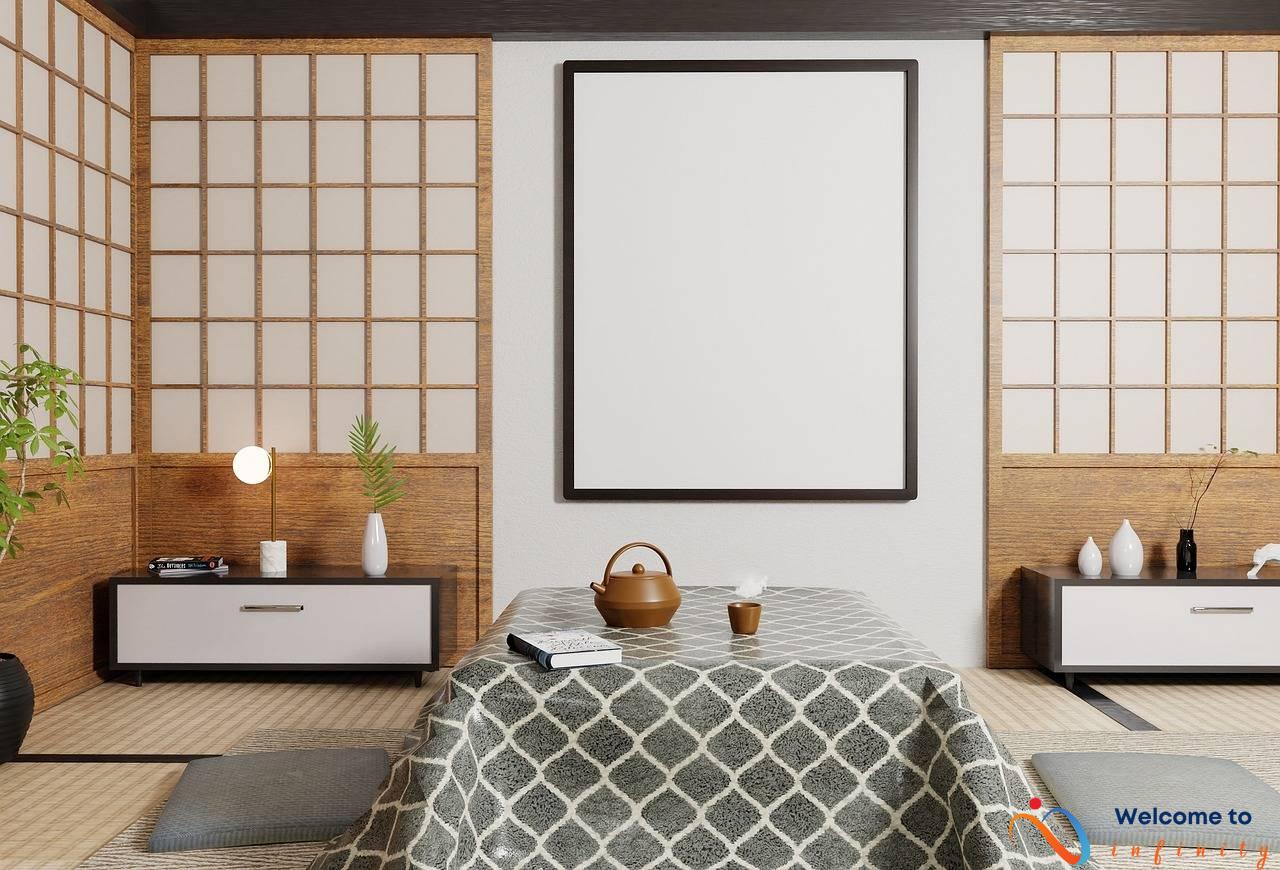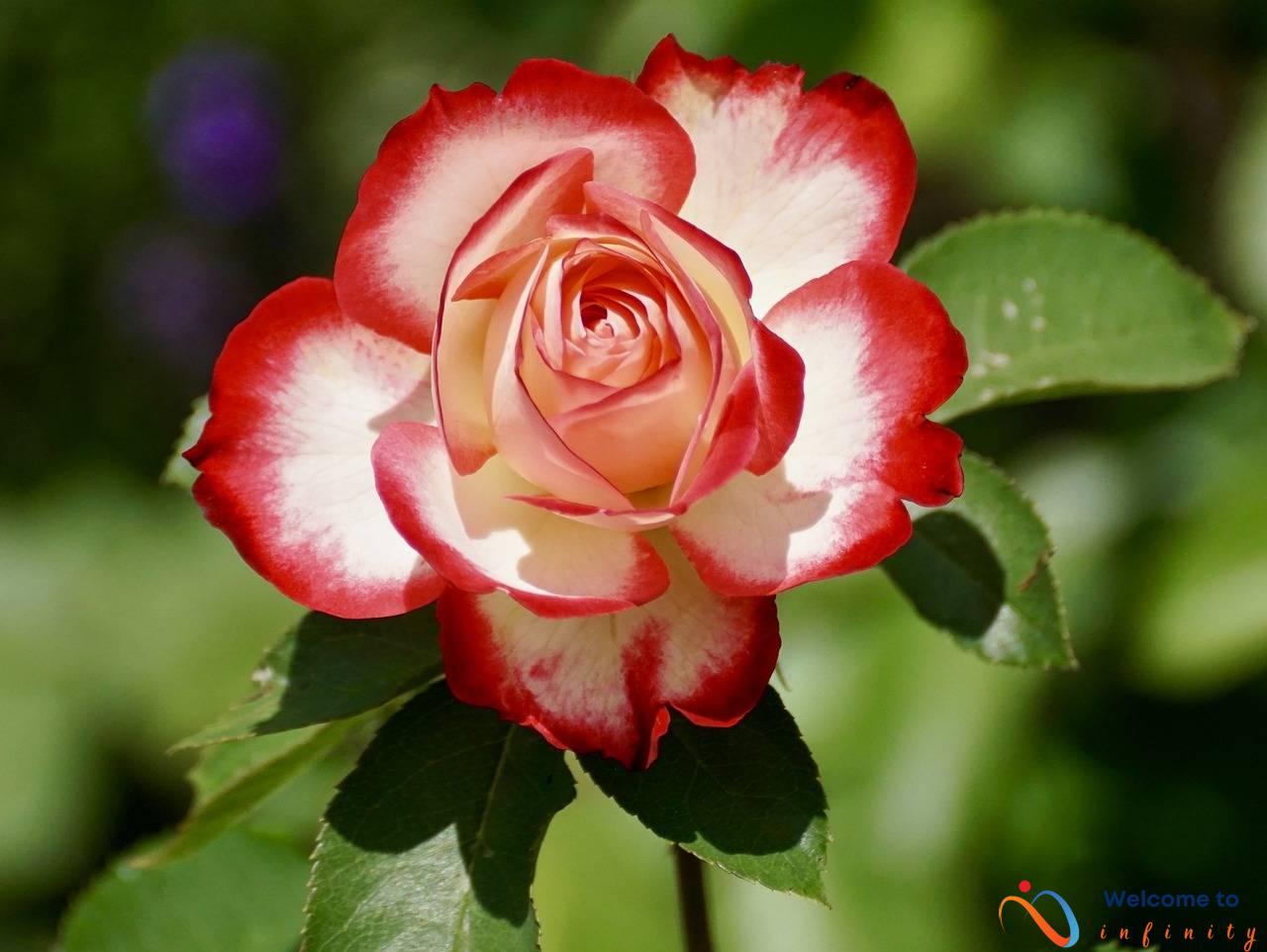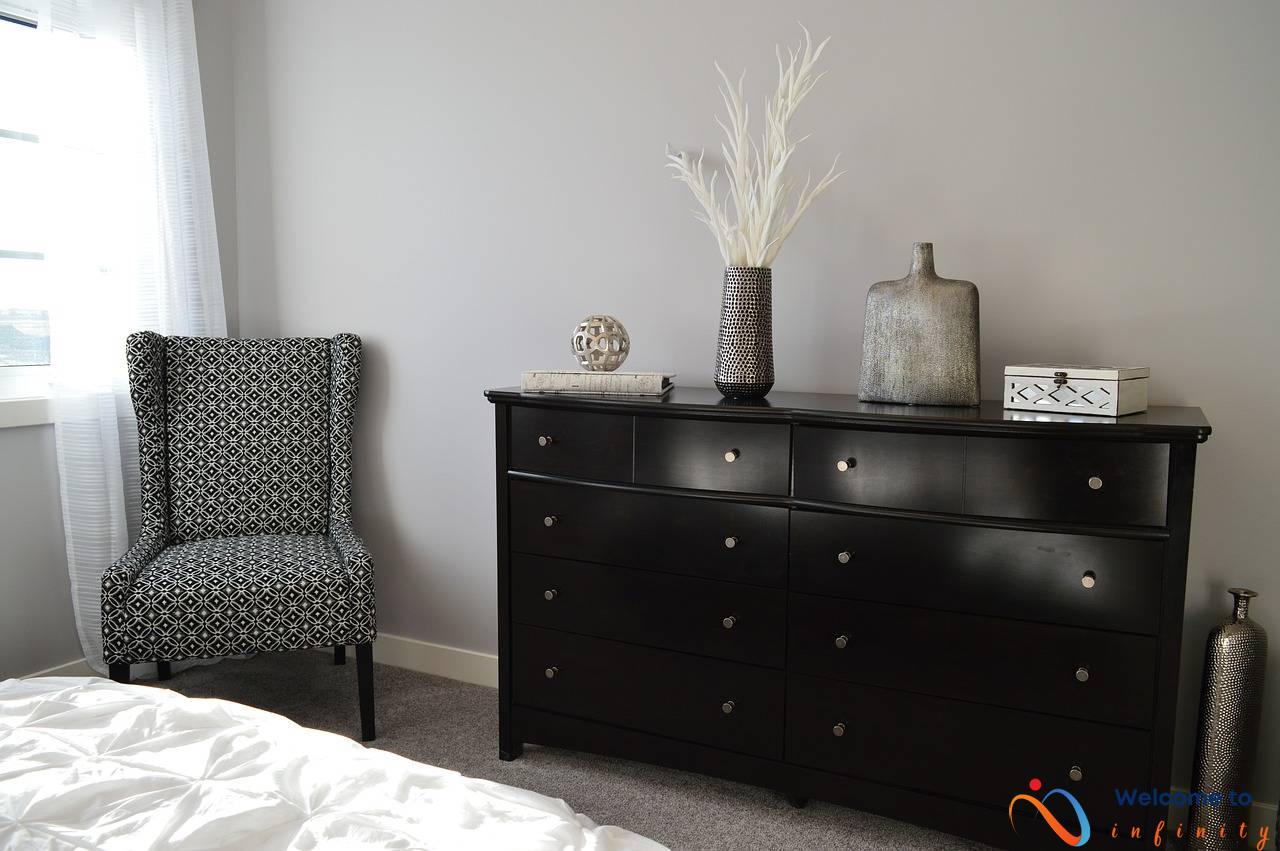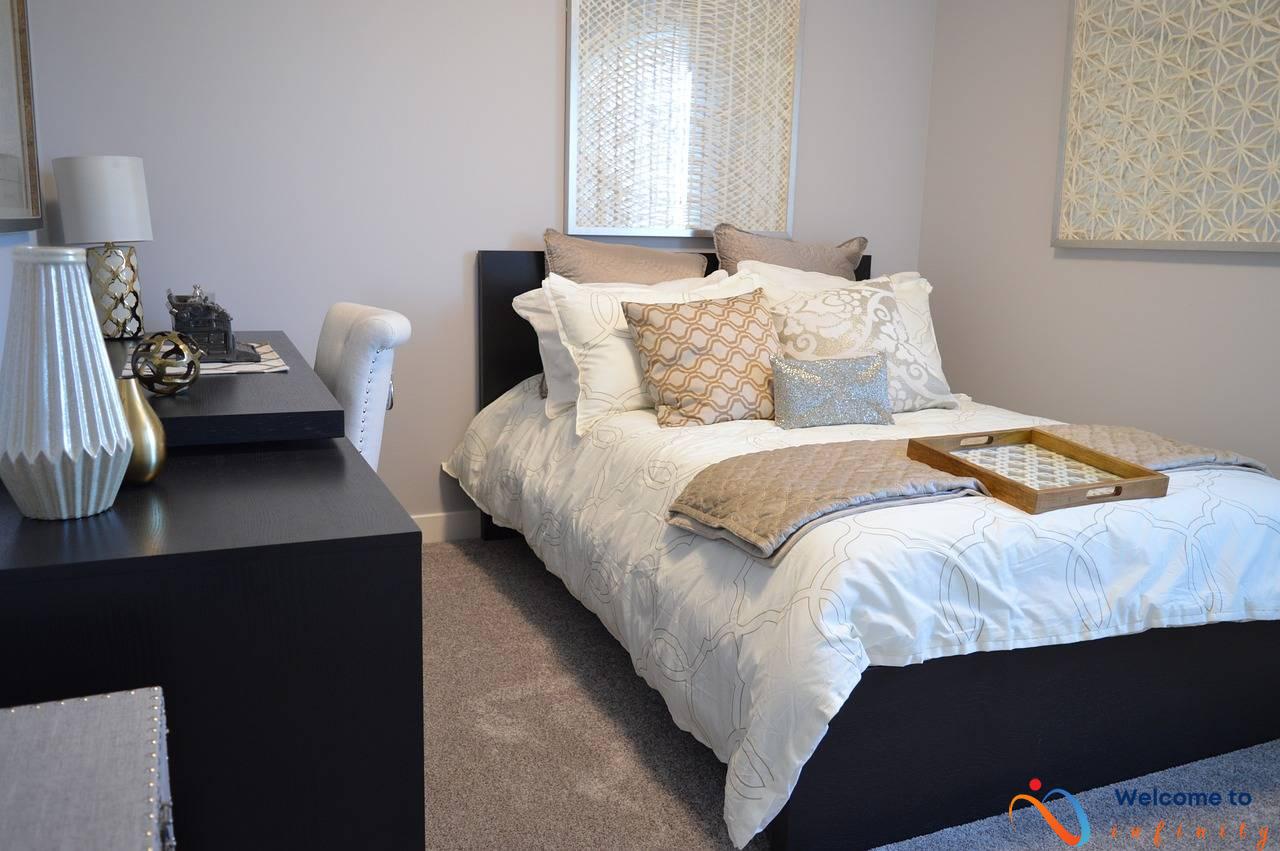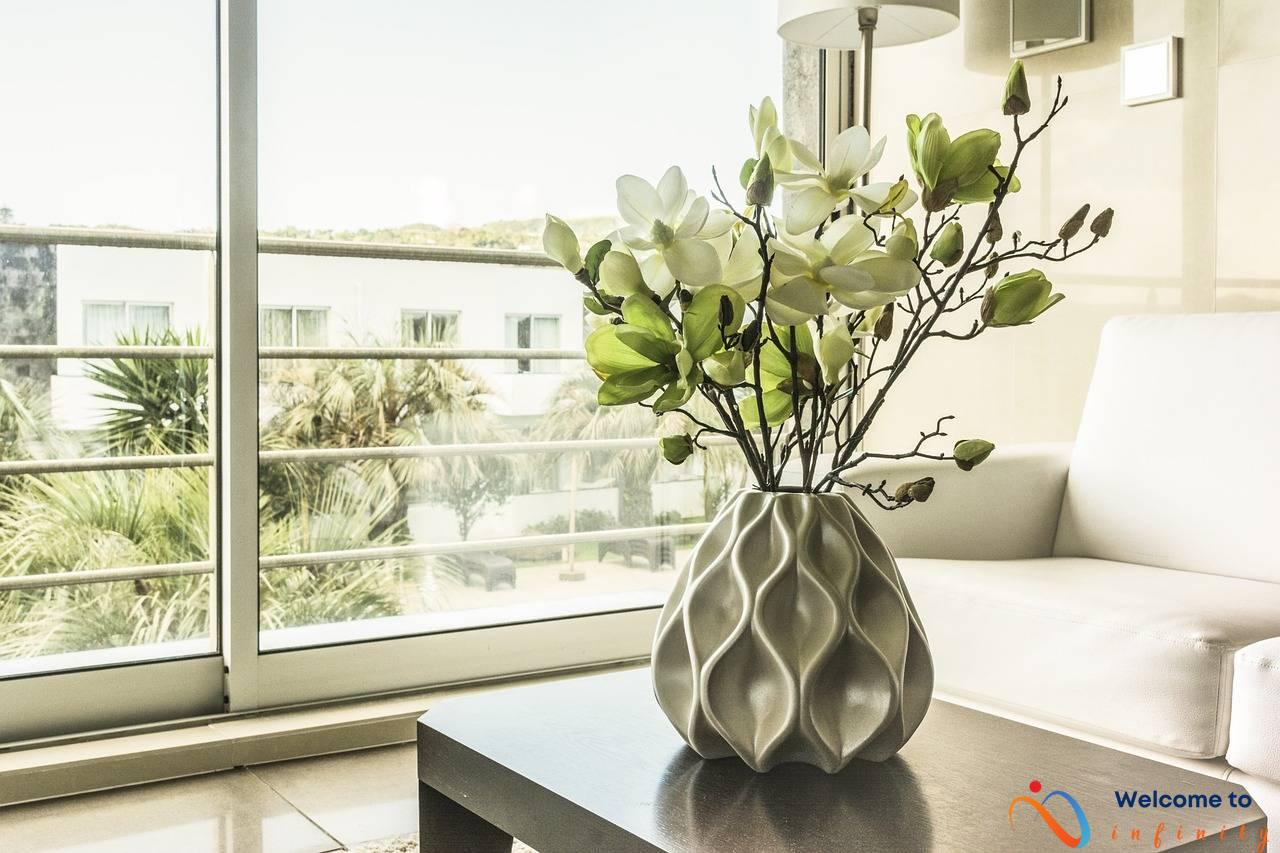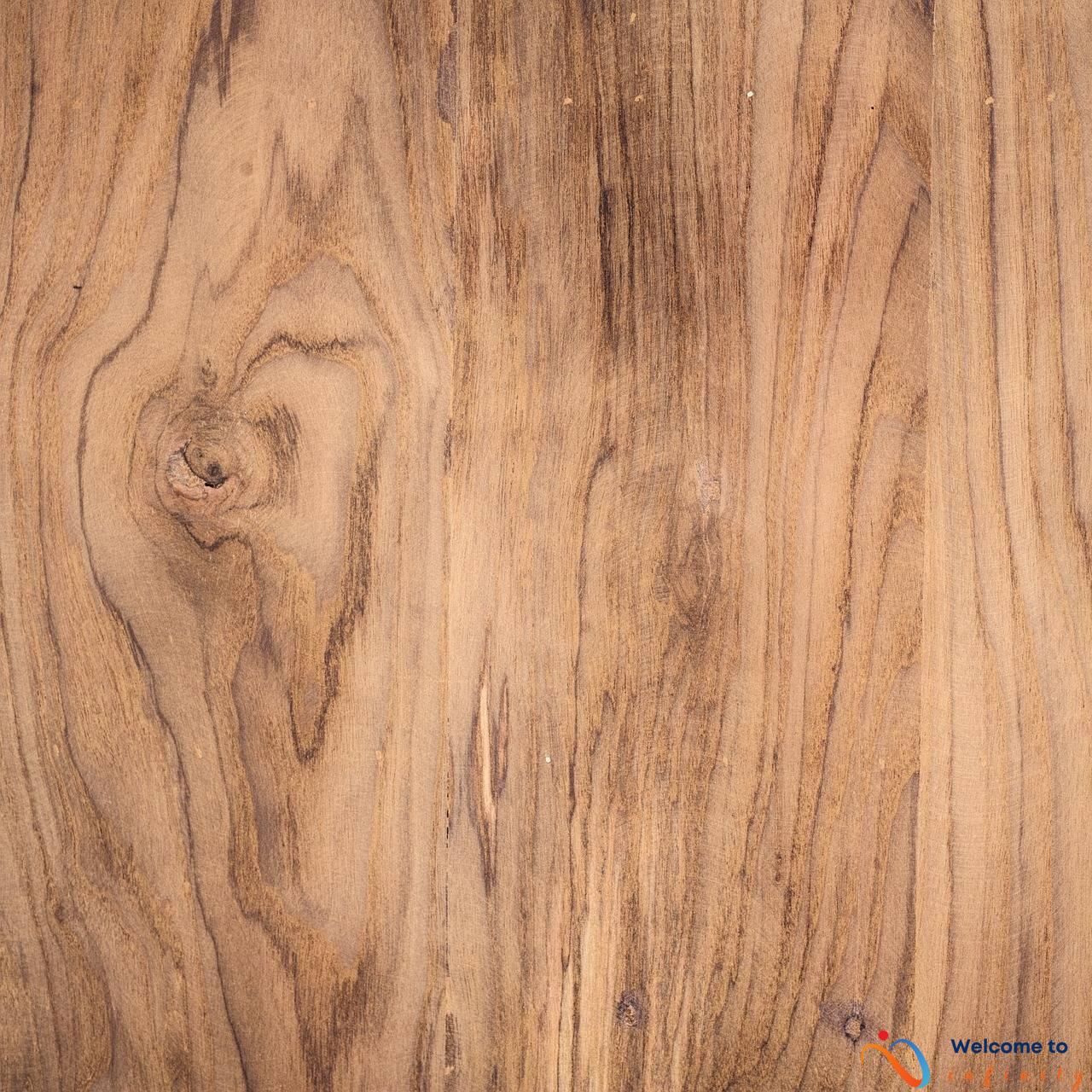Aromatherapy is a popular method for promoting relaxation and improving overall well-being. By incorporating essential oils into your bedroom routine, you can experience a range of benefits that can enhance your sleep, relaxation, and mood.
Essential oils are concentrated extracts derived from plants that produce aromatic scents. When diffused, essential oils release their natural fragrances and can positively impact your mood and emotions. Choosing the right essential oils and diffuser can be an enjoyable experience that leads to a more restful and peaceful sleep.
By adding a few drops of your chosen essential oil to a diffuser, not only will you be creating an inviting and calming atmosphere, but you'll also enjoy the benefits of each oil. For instance, lavender oil has been shown to reduce stress and anxiety, while chamomile is known for its calming properties and promoting better sleep. Bergamot is a great option to start your day on the right foot, as it can uplift your mood and spirit. These essential oils can be used on their own or in combination to create a custom blend that caters to your specific needs.
An essential oil-infused linen spray can also help create a relaxing environment. By spraying it on your sheets or pillowcases before bedtime, you'll be inhaling the calming scents as you drift off to sleep. Additionally, adding a few drops of essential oil to your bath can create a spa-like experience that melts stress away and refreshes your senses.
Discovering the benefits of essential oils and diffusers in the bedroom can positively impact your overall quality of life, and with a little exploration, you may find your own perfect combination to enhance your sleep, relaxation, and mood.
Choosing the Right Essential Oils
Choosing the right essential oils is important when incorporating aromatherapy into your bedroom routine. There are many different oils available, each with its own unique benefits and properties. Some common essential oils used in the bedroom include lavender, chamomile, ylang-ylang, and bergamot.
Lavender is perhaps the most popular essential oil for promoting relaxation and sleep. It has a calming and soothing effect on the body and mind. Chamomile is another excellent choice for promoting relaxation and reducing stress. Ylang-ylang is known for its aphrodisiac properties and can help to enhance romance and intimacy. Bergamot is a mood-lifter and can help to reduce anxiety and depression.
When selecting essential oils, it's important to consider your personal preferences and needs. Some oils may work better for you than others, depending on your individual circumstances. Experimenting with different blends can help you find the perfect combination for your needs.
One way to create a custom blend of essential oils is to start with a base oil, such as sweet almond or coconut oil, and then add a few drops of your chosen essential oils. You can also refer to blends recommended by aromatherapists for specific purposes, such as promoting sleep or reducing stress. Keep in mind that essential oils are highly concentrated and should be used in moderation. It's always a good idea to do a patch test before using any new oil on your skin.
How to Use Essential Oils in the Bedroom
If you want to incorporate essential oils into your bedroom routine, there are several ways to do so. One popular method is using a diffuser, which disperses the essential oil into the air, allowing you to reap its aromatherapy benefits. To use a diffuser, simply fill it with water and add a few drops of your chosen essential oil, then turn it on and enjoy the scent.
Another option is to create a linen spray by diluting your essential oil of choice with water and adding it to a spray bottle. Lightly mist your linens and pillows for a refreshing and soothing scent before bed. Alternatively, you can also add a few drops of essential oil directly to your bathwater for a relaxing and rejuvenating soak.
When using essential oils in the bedroom, it's important to keep in mind that they should always be diluted properly and used in moderation to avoid any adverse reactions. Additionally, be sure to choose oils that complement your individual needs and preferences, and always use high-quality, pure essential oils to achieve the best results.
The Best Essential Oils for Sleep
Getting a good night's sleep is essential for overall wellbeing, and essential oils can aid in promoting relaxation and inducing sleep. Some of the best essential oils for sleep include lavender, chamomile, and ylang-ylang.
- Lavender: This oil is well-known for its calming properties, helping to reduce stress and anxiety. Its soothing scent can induce relaxation, making it perfect for use before bedtime. It has been shown to improve the quality of sleep, leading to more restful nights.
- Chamomile: Chamomile is not only great for drinking in tea, but its essential oil form can also help promote sleep. It has a sweet, floral scent that can help calm the mind and soothe the body, leading to better sleep quality.
- Ylang-ylang: This oil has a rich, sweet floral scent that can help reduce stress and anxiety, ultimately leading to better sleep. It is also known to regulate heart rate, making it perfect for reducing feelings of restlessness and promoting relaxation.
When using essential oils for sleep, it is important to dilute them properly and use them safely. Always follow the recommended usage instructions and consider mixing a few of these oils together for a more effective blend. A custom blend tailored to your individual sleep needs can be a great addition to your bedtime routine.
Blending Essential Oils for Sleep
Creating a custom essential oil blend can be a great way to target your specific sleep needs. Here are some tips to help you create the perfect blend:
- Start with a base oil: Carrier oils such as almond, coconut, or jojoba are commonly used to dilute essential oils before use. Start by mixing 1-2 ounces of carrier oil with 12-15 drops of essential oil.
- Choose your essential oils: Some of the best essential oils for sleep include lavender, chamomile, vetiver, and bergamot. Experiment with different combinations to find what works best for you.
- Blend carefully: Add the essential oils to the carrier oil one drop at a time, blending after each addition. This helps to ensure that the blend is well-mixed and to control the strength of the aroma.
- Adjust to your preference: After blending, take a whiff of the mixture and adjust the amount of essential oil based on your preference. If it seems too strong, add more carrier oil to dilute it.
Remember to always label your essential oil blends and store them in a cool, dry place away from direct sunlight. Also, consider using a roll-on bottle for easier application before bed. These are available at most health and wellness stores.
Using Essential Oils for Nighttime Skincare
Using essential oils in your nighttime skincare routine is a great way to promote relaxation and improve the overall appearance of your skin. Essential oils can help to deeply nourish and hydrate the skin, reduce the appearance of fine lines and wrinkles, and even out skin tone.
One way to incorporate essential oils into your skincare routine is by adding a few drops of your favorite oil to your moisturizer or serum. This can help to amplify the benefits of your existing products, while also providing an extra boost of hydration and nourishment to the skin.
Another great way to use essential oils in your skincare routine is by creating a calming and hydrating facial mist. Simply mix a few drops of your favorite essential oil with water and pour it into a spray bottle. Spritz onto your face before bed to help relax your mind and deeply moisturize your skin.
If you have oily or acne-prone skin, you can also use essential oils to help balance and purify the skin. Tea tree oil, for example, is a powerful antibacterial and anti-inflammatory agent that can help to clear up breakouts and reduce inflammation. Just be sure to dilute it with a carrier oil, like jojoba or argan oil, before applying it to the skin.
When using essential oils in your skincare routine, it's important to patch test the oil first to ensure that you're not allergic or sensitive to it. Additionally, be sure to follow the proper dosage guidelines for each oil, as some can be irritating or harmful in high concentrations.
In conclusion, incorporating essential oils into your nighttime skincare routine can provide a multitude of benefits for both your skin and your overall sense of wellbeing. Experiment with different oils and blends to find what works best for your individual skin type and concerns.
The Mood-Boosting Benefits of Essential Oils
Essential oils not only offer physical benefits but also emotional benefits. Inhaling certain essential oils can improve mood, reduce stress, and promote mental clarity. The mood-boosting benefits of essential oils make them an excellent addition to any bedtime routine.
Peppermint essential oil is known for its invigorating and energizing properties. It can stimulate the mind and increase mental alertness. Citrus essential oils, such as sweet orange, lemon, and grapefruit, can help uplift the mood and create a feeling of happiness and positivity. Rose essential oil is known for its ability to promote relaxation and reduce stress, making it an excellent option for those experiencing symptoms of anxiety or depression.
| Essential Oil | Mood-Boosting Benefits |
|---|---|
| Peppermint | Invigorating, energizing, promotes mental alertness. |
| Citrus (sweet orange, lemon, grapefruit) | Uplifting, creates a feeling of happiness and positivity. |
| Rose | Promotes relaxation, reduces stress, helpful for anxiety and depression. |
One of the easiest ways to use essential oils for their mood-boosting benefits is through a diffuser. Add a few drops of your favorite essential oil or a blend of oils to a diffuser, and let the aromas fill the room. You can also create a custom blend of oils tailored to your mood or individual needs.
- For a calming blend, combine lavender, bergamot, and frankincense.
- For an energizing blend, combine peppermint, lemon, and rosemary.
- For a mood-lifting blend, combine sweet orange, grapefruit, and ylang-ylang.
Experiment with different essential oils and blends to find what works best for you. Just remember to always follow appropriate safety precautions and use essential oils in moderation.
Choosing the Right Diffuser
If you're looking to incorporate aromatherapy into your bedroom routine, choosing the right diffuser is key to getting the most out of your essential oils. There are several types of diffusers to choose from, and the best one for you will depend on your individual needs and preferences. Here are some tips for selecting the perfect diffuser for your bedroom:
- Consider size: Diffusers come in a variety of sizes, from small portable models to larger units intended for use in bigger spaces. Consider the size of your bedroom and how much space you have available for a diffuser before making your choice.
- Think about noise level: Some diffusers can be quite loud when in operation, which may be disruptive to your sleep if you're a light sleeper. Look for models that are designed to operate quietly.
- Stay within budget: Diffusers can vary greatly in price, with some designs costing hundreds of dollars. Consider your budget when selecting a diffuser, and remember that a higher price tag doesn't necessarily mean better quality.
Another important consideration when selecting a diffuser is the type of essential oils you plan to use. Certain oils may break down plastic diffusers, so it's important to choose a model that's made from materials that are compatible with the oils you plan to use. Additionally, some diffusers are better suited to certain types of oils, such as thicker oils that require more heat to diffuse properly.
Ultimately, the right diffuser for you will depend on your specific needs and preferences. Take some time to research different models and their features to determine which one will work best for your bedroom and your essential oil routine.
DIY Diffuser Blends
If you're feeling creative, creating your own essential oil blends can be a fun and rewarding activity. Experimenting with different combinations of oils can help you find the perfect scent for your bedroom and your desired mood.
Here are some simple recipes for creating your own blends:
- Relaxation Blend: 4 drops lavender + 2 drops chamomile
- Mood-Boosting Blend: 2 drops peppermint + 3 drops lemon + 2 drops grapefruit
- Sleep Aid Blend: 4 drops lavender + 2 drops cedarwood + 2 drops ylang-ylang
- Stress Relief Blend: 3 drops bergamot + 2 drops frankincense + 2 drops orange
When creating your own blends, it's important to use high-quality essential oils and to start with small amounts to see how the scents work together. You can also adjust the amount of each oil based on your personal preferences.
Remember, the possibilities are endless when it comes to blending essential oils. Have fun and get creative!
Safe Use of Essential Oils
While there are many benefits to using essential oils and diffusers in the bedroom, it's important to be aware of the potential safety risks as well. Here are some key considerations to keep in mind:
- Always use essential oils as directed and follow recommended dosages closely. Overuse of certain oils can lead to allergic reactions or irritation.
- Some essential oils are not safe for pregnant women or those with certain medical conditions, such as epilepsy or high blood pressure. Consult with a healthcare provider before using essential oils if you have any concerns.
- Be cautious when using a diffuser around pets, as some oils can be toxic to animals.
- Keep essential oils out of reach of children and avoid getting them in eyes or on skin without proper dilution.
Additionally, it's important to choose high-quality essential oils from reputable sources to ensure purity and avoid potential adulteration or contamination. By following these guidelines and being mindful of safety considerations, you can enjoy the many benefits of aromatherapy in the bedroom with peace of mind.
Conclusion
Incorporating aromatherapy into your bedroom routine can provide many benefits for both your physical and mental health. The use of essential oils and diffusers can help you to achieve a more relaxed state, sleep better, and improve your mood. By choosing the right essential oils and diffuser for your needs, you can create a customized experience that is perfect for you.
Some of the best essential oils for sleep include lavender, chamomile, and ylang-ylang. For daytime use, peppermint, citrus, and rose can help to uplift and improve your mood. When selecting a diffuser, be sure to consider factors such as size, noise level, and budget. Additionally, make sure to follow essential oil safety guidelines to ensure proper usage and avoid harmful effects.
To get started with essential oils and diffusers, consider trying out some of the DIY diffuser blends provided in this article. You can also experiment with creating your own blends by combining different essential oils to suit your needs and preferences. With the right tools and knowledge, incorporating aromatherapy into your bedroom routine can be an easy and enjoyable process. So go ahead and give it a try today!


